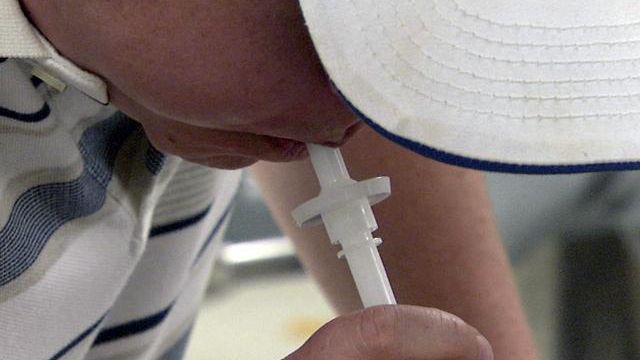WRAL Investigates
DWI dismissals not always for right reasons
About one-fifth of the 5,000 DWI cases in Wake County Court last year were dismissed, and many of the outcomes had nothing to do with guilt or innocence.
Posted — UpdatedRALEIGH, N.C. — About one-fifth of the approximately 5,000 driving while impaired cases on the docket in Wake County last year were dismissed, according to court records.
Statewide, there were about 70,000 DWI charges – 20 percent of which were dropped.
Although the North Carolina Administrative Office of the Courts doesn’t record why DWIs are dismissed, Wake County District Attorney Colon Willoughby says some of those dismissals have nothing to do with guilt or innocence.
“We lose hundreds of cases a year because of the unavailability of officers,” he said.
An examination of 30 randomly selected case files found delays eventually led to dismissals because the arresting officer never appeared in court to testify. Some of those suspects had extremely high blood-alcohol levels; others had criminal records.
Approximately 15 to 20 of those cases were dismissed because they were handled by a state Highway Patrol trooper who was fired last year because he was accused of profiling young women for late-night traffic stops.
Another law enforcement officer had six DWI cases dismissed when he left for the military.
Even a tragedy like the death of Trooper Andrew Stocks, who was killed earlier this month when his patrol car went out of control and hit a garbage truck in Garner, could lead to the dismissal of as many as 20 of his pending DWI cases.
The reason for such dismissals, prosecutors and defense attorneys say, is that the arresting officer is often the only witness who can place a DWI suspect behind the wheel of a vehicle.
Defense attorney Karl Knudsen admits some cases do not deserve to be dismissed, but says it is crucial to have the key witness in court to testify.
“It’s one of the fundamental principles of our system of laws,” he said. “We don’t have a trial-by-paper or a trial-by-affidavit.”
Willoughby says repeated delays increase the chance of losing a witness.
Out of the approximately 1,000 cases dismissed last year in Wake County, 269 were more than a year old.
“The biggest solution is resources,” Willoughby said. “Put pressure on the judges to try these cases quicker.”
District Judge Jane Gray says scheduling conflicts and crowded courtrooms slow down the system.
“We’re trying, but it’s very difficult,” Gray said. “When you have a courtroom of 200 cases and 11 of them are DWIs, you cannot reach all of them.”
And defense attorneys will sometimes ask for delays, knowing time is on their side.
“The honest answer to that question is ‘Yes,’” Knudsen said. “It’s not unethical. It’s not illegal. It’s just part of the process.”
Gray says Wake County is trying to be more efficient. For example, a new DWI court on the ninth floor of the Wake County Courthouse is devoted to the older cases.
Prosecutors and defense attorneys both feel the dismissal rate sounds high. They believe charges, such as aiding and abetting DWI often get dismissed.
They also say drivers under 21 usually get DWIs dismissed and replaced witha charge for drinking and driving under age.
“If they took it seriously enough, then it wouldn’t happen as often,” said Marcy Henly, whose 61-year-old mother, Kay Stokes, was killed in 2005 by Kenneth Maready, a repeat drunken driver whose blood-alcohol level was more than three times the legal limit when he crashed into a pickup truck Stokes was driving.
At the time of the crash, Maready had a revoked driver's license and six DWI convictions on his record.
Henly says she does not understand how cases can so easily be dismissed and says she questions whether DWIs are taken seriously enough by the courts or the people charged.
“It’s kind of selfish just to get a buzz to get a high and never think of the consequences,” Henley said.
• Credits
Copyright 2024 by Capitol Broadcasting Company. All rights reserved. This material may not be published, broadcast, rewritten or redistributed.





